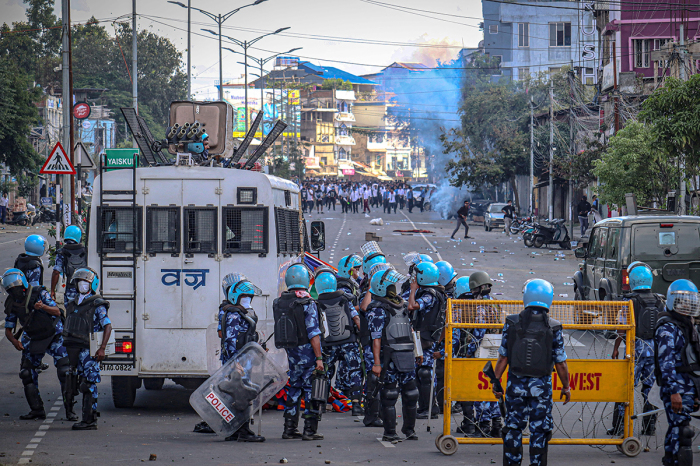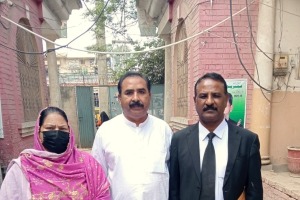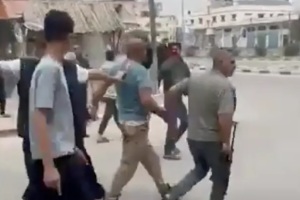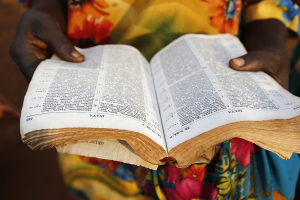Manipur violence escalates as insurgents cross over from Myanmar

Entering its fifth month, violence in Manipur has intensified, with insurgents seen directing mobs and participating in attacks on security forces, even as the death toll has climbed to at least 200. Kuki-Zo tribal Christians make up the majority of the casualties.
The unrest, which began on May 3, has led to a resurgence of banned groups and a spike in fatalities, raising concerns about the state’s stability, according to reports in the Indian media.
According to the Press Trust of India, militants were observed guiding mobs in the Hindu Meitei region of Imphal Valley, where pictures of two missing teenagers had incited violence.
Officials noted that during an attack on a police party, armed men in black uniforms were directing agitated youths. The security agencies had warned that militants from Meitei groups like the United National Liberation Front and People’s Liberation Army were mingling with the crowds.
Citing security analysts, ThePrint reported that the situation has changed dramatically since the ethnic violence erupted five months ago. Over 175 people have been killed and more than 1,100 injured across the state, according to Manipur police. The BBC has reported the death toll at 200, although unofficial figures suggest the actual count could be significantly higher.
According to the Kuki-Zo Indigenous Tribal Leaders’ Forum, at least 137 people from the Christian community have been killed and over 200 villages have been destroyed.
Around 4,537 arms and 632,000 bullets have been looted, mainly from Manipur Police Training Centre at Pangei in the Meitei area of East Imphal and other locations.
According to ThePrint, on the Kuki-Zo side, insurgents have reportedly joined hands with village defense forces. On the Meitei side, insurgents have returned from Myanmar and are actively resisting the Kuki-Zo demand for a “separate administration.”
The violence has reportedly also led to a spike in extortion demands by insurgent groups in both valley and hill areas. In the Imphal area, ransom notices were served to shopkeepers by banned outfits. In the hills, groups like the United Kuki Liberation Front and Kuki National Army are allegedly demanding money from non-locals.
The situation is further complicated by the threat of cross-border infiltration from Myanmar, where several insurgent groups have found a safe haven. Rebel camps are reportedly located on the southern side of the border and further north near Moreh and Tamu.
The violence erupted in Manipur following a controversial court order for the state to consider extending special economic benefits and quotas, previously reserved for the tribal Kuki-Zo people, to the Meitei population. It would also give the state government-backed Meiteis the right to buy land in the hills where the Kuki-Zo people live.
The government has deployed about 50,000 soldiers, armed police and other security personnel to enforce buffer zones between the two communities. Despite these measures, mobs have looted more than 4,000 weapons and half a million rounds of ammunition from police in Manipur, according to official estimates.
Lt. General P.C. Nair, director general of the federal paramilitary force Assam Rifles, recently described the situation as “unprecedented,” highlighting the “large number of weapons” within both communities as a key concern, according to The Wire. “Mobs surrounding forces, women blocking roads are new hurdles for the force trained to fight armed insurgents,” he said.
Nair added, “We are here only to curtail the levels of violence. … But more importantly, we are talking to multiple civil society organizations and various stakeholders to get them to hold talks.”
In July, the European Parliament passed a resolution urging the Indian government to urgently restore peace in Manipur.
“There have been concerns about politically motivated, divisive policies promoting Hindu majoritarianism, and about an increase in activity by militant groups,” the resolution stated. There are also “accounts of partisan involvement by security forces in the killings have increased distrust in the authorities.”





























